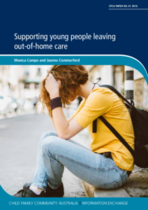Underrepresented Populations in the Child Welfare System: Asian American and Native Hawaiian/Pacific Islander Populations
This chapter from the book Racial Disproportionality and Disparities in the Child Welfare System explores disproportionality and disparities of Asian American and Native Hawaiian/Pacific Islander in the child welfare system.

